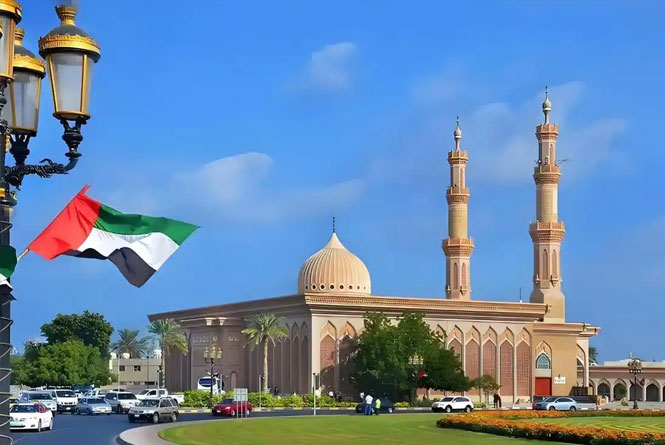Establishing a trading business setup in Dubai has become synonymous with accessing unparalleled growth opportunities. As a glittering nexus between East and West, Dubai offers a strategic gateway to a market of over 2 billion people. Entrepreneurs and multinational corporations are consistently drawn to its world-class infrastructure, political stability, and incredibly business-friendly environment. This comprehensive guide will walk you through the five critical aspects of launching your trading company in this dynamic emirate, address the most common questions, and provide the insights you need for a successful and compliant trading business setup in Dubai. Whether you're dealing in commodities, electronics, textiles, or any other goods, understanding the Dubai landscape is your first step toward global trading success.

Strategic Geographic Location
Dubai’s prime location is arguably its greatest asset. Situated at the crossroads of Europe, Asia, and Africa, it allows businesses to efficiently serve markets across the globe. Major shipping and air routes pass through Dubai, making it a central logistics and distribution hub. A trading business setup in Dubai means your products are never more than a flight or a shipment away from your key customers.
100% Foreign Ownership and Tax Benefits
Recent legislative changes have been a game-changer. You can now achieve 100% foreign ownership for your trading business setup in Dubai mainland, eliminating the need for a local sponsor. Furthermore, Dubai offers a compelling tax regime with zero percent personal income tax and zero percent corporate tax on most trading activities for the foreseeable future, allowing for maximum profit retention and reinvestment.
World-Class Infrastructure and Logistics
From the colossal Jebel Ali Port, one of the busiest in the world, to the state-of-the-art Dubai International Airport (DXB) and Al Maktoum International Airport (DWC), Dubai’s infrastructure is built for trade. Add to that extensive warehousing facilities, free zones with streamlined customs, and a digitally advanced government, and you have an ecosystem designed for seamless trading operations.
Access to Lucrative Markets
A trading license in Dubai opens doors not just to the local UAE market, but also to the wider GCC, MENA region, and beyond. The UAE has extensive double taxation avoidance treaties and strong bilateral trade relationships, making cross-border trade smoother and more profitable.
Ease of Doing Business and Political Stability
The UAE government is famously pro-business, with processes designed for efficiency and speed. The country ranks highly on the global Ease of Doing Business index. Coupled with its robust political and economic stability, this makes Dubai one of the safest and most reliable jurisdictions for international entrepreneurs to invest in.
A crucial decision for your trading business setup in Dubai is selecting the right jurisdiction. Your choice between a mainland and free zone company will define your scope of operations, costs, and legal requirements.
Mainland Trading License (DED)
A mainland company, licensed by the Dubai Department of Economic Development (DED), allows you to conduct business directly within the local UAE market and beyond without restrictions.
Key Advantages:
Ability to trade directly with the local UAE market and government entities.
No restrictions on office location within Dubai.
Fewer limitations on the scale of business activities.
Considerations:
Typically requires a physical office space.
Previously required a local service agent (for LLCs), but recent laws now allow for 100% foreign ownership in many sectors.
Free Zone Trading License
Free zones are designated areas that offer specific incentives to businesses. Each free zone has its own authority and regulations.
Key Advantages:
100% foreign ownership is a standard benefit.
Full corporate tax exemptions for a specific period (often 50 years).
Streamlined import and export procedures with custom duty exemptions.
Often provide flexible office solutions (e.g., flexi-desks).
Considerations:
Trading directly within the local UAE market may require engaging with a local distributor or clearing agent and going through customs.
Operations are generally confined to the specific free zone, though this is changing with new virtual license options.
Popular Free Zones for Trading: Dubai Multi Commodities Centre (DMCC), Jebel Ali Free Zone (JAFZA), Dubai Airport Free Zone (DAFZA).

Navigating the trading business setup in Dubai process is straightforward when you understand the steps involved.
Define Your Business Activity: Precisely define the products you will trade. This determines the specific licensing requirements and costs.
Choose a Trade Name: Select a unique name for your company and get initial approval from the relevant authority (DED or Free Zone).
Apply for Initial Approval: Submit the initial application for your license along with the required documents.
Draft Legal Documents: For mainland LLCs, this involves drafting the Memorandum of Association (MoA). Free zones have their own incorporation documents.
Secure Your Office Space: Lease a physical office or opt for a flexi-desk/warehousing facility, depending on your jurisdiction and needs.
Submit Documents and Obtain Licenses: Submit all finalized documents, including lease agreements, passport copies, and business plans, to the licensing authority. Upon approval, you will receive your trade license.
Open a Corporate Bank Account: With your license and documents, you can approach local or international banks in the UAE to open your business account.
The cost of a trading business setup in Dubai varies significantly based on your chosen jurisdiction, activities, and office needs.
Mainland Setup (Approximate Costs):
Trade Name Reservation: ~AED 1,000-2,000
DED License Fee: AED 15,000 - AED 30,000+ (depending on activity)
Office Rent: Highly variable (from AED 20,000/year for a small office)
Local Agent Fee (if applicable): AED 10,000 - AED 20,000 annually
Miscellaneous Government Fees: ~AED 5,000 - AED 10,000
Free Zone Setup (Approximate Costs):
License Fee: AED 10,000 - AED 25,000
Office/Desk Rental: AED 8,000 (flexi-desk) to AED 30,000+ (office space) annually
Registration & Admin Fees: ~AED 2,000 - AED 5,000
Additional Costs: Visa costs, PRO services, legal consultation fees, and bank account opening fees should also be factored into your budget.
A successful trading business setup in Dubai requires adherence to local laws.
Licensing: Ensure your license accurately reflects all intended trading activities.
Customs Regulations: Register with Dubai Customs immediately after obtaining your license to begin import/export operations. Understanding HS codes and duty rates is critical.
Intellectual Property (IP): Register your trademarks with the UAE Ministry of Economy to protect your brand.
Visa Regulations: Understand the visa quotas linked to your office space size. The process for sponsoring employee visas is well-defined but must be followed meticulously.
Annual Renewals: Your trade license, office lease, and visas require annual renewal, involving government fees.
Q1: What is the minimum capital requirement for a trading business in Dubai?
A: There is no mandated minimum capital requirement for most trading activities. The "standard" AED 300,000 capital mentioned in MoAs is no longer a paid-up requirement but rather an authorized share capital. The actual capital required is what you deem necessary to run your business.
Q2: How long does it take to set up a trading company?
A: The timeline can be very quick. In a free zone, it can take as little as 3-5 working days to get your license. A mainland setup might take 1-2 weeks, depending on the complexity of the activity and office leasing.
Q3: Can I get a residency visa through my trading business?
A: Yes, absolutely. One of the key benefits of a trading business setup in Dubai is the ability to sponsor residency visas for yourself, your family, and your employees. The number of visas depends on the size of your office premises.
Q4: Is it necessary to have a physical office?
A: For a mainland license, a physical office is mandatory. Many free zones offer cost-effective alternatives like flexi-desks or virtual office packages that satisfy this requirement while keeping overheads low.
Q5: What are the best free zones for a trading business?
A: The "best" zone depends on your product and target market.
DMCC: Ideal for commodities (gold, diamonds, precious metals), tea, coffee.
JAFZA: Excellent for heavy industrial trading and logistics, given its proximity to Jebel Ali Port.
DAFZA: Perfect for businesses targeting air freight and high-value goods.
Q6: Do I need to be physically present in Dubai to set up the company?
A: No. You can grant a Power of Attorney (POA) to a trusted local consultant or law firm to handle the entire setup process on your behalf. Many investors use this method for a smooth and remote setup.
A trading business setup in Dubai is more than just incorporating a company; it's about positioning your enterprise at the heart of global commerce. The emirate's unique combination of strategic advantages, liberal economic policies, and visionary leadership creates an environment where trading businesses don't just survive—they thrive.
While the process is designed to be efficient, partnering with a reputable business setup consultant can save you valuable time and ensure your venture is compliant from day one. They can provide tailored advice on the optimal jurisdiction, navigate legal complexities, and help you avoid common pitfalls.
Take the first step today. Define your product, research your market, and embark on your journey to establish a powerful and profitable trading hub in Dubai. The world's marketplace is waiting.










Zhuoxin Consulting relies on its Chinese service network and Dubai executive team to provide professional one-stop business services without communication barriers for Chinese companies to enter the Middle East market. Its business covers company establishment and maintenance, accounting and taxation, bank account opening, PRO services and business services.
Zhuoxin Consulting has high-quality business resources and maintains close cooperation with many free zones, bankers and tax departments in the UAE to escort your expansion in the Middle East market.
 Add WeChat
Add WeChat